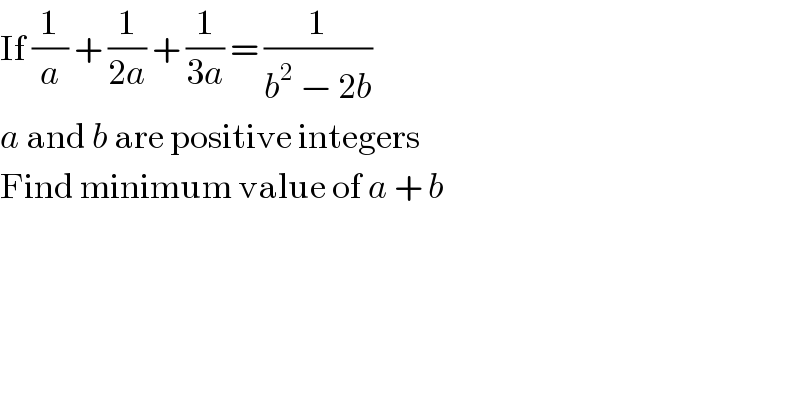
Question and Answers Forum
Question Number 21236 by Joel577 last updated on 17/Sep/17

Answered by mrW1 last updated on 17/Sep/17

Commented by $@ty@m last updated on 17/Sep/17

Commented by mrW1 last updated on 17/Sep/17

Commented by Joel577 last updated on 18/Sep/17

